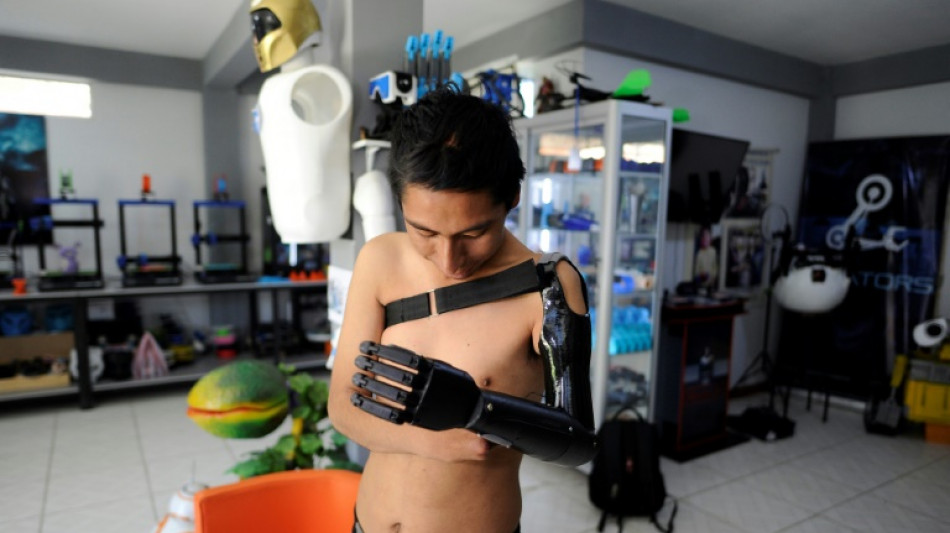
-
 Burning effigy, bamboo crafts at once-a-decade Hong Kong festival
Burning effigy, bamboo crafts at once-a-decade Hong Kong festival
-
Joshua knocks out Paul to win Netflix boxing bout
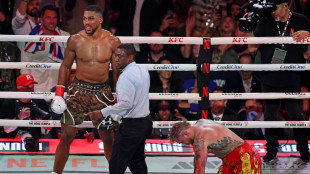
-
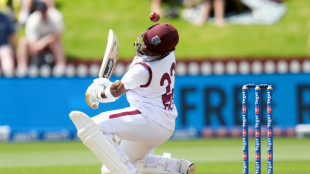 Dogged Hodge ton sees West Indies save follow-on against New Zealand
Dogged Hodge ton sees West Indies save follow-on against New Zealand
-
England dig in as they chase a record 435 to keep Ashes alive
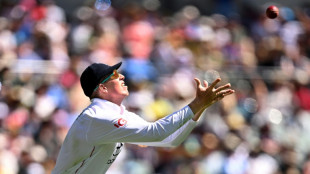
-
 Wembanyama 26-point bench cameo takes Spurs to Hawks win
Wembanyama 26-point bench cameo takes Spurs to Hawks win
-
Hodge edges towards century as West Indies 310-4, trail by 265
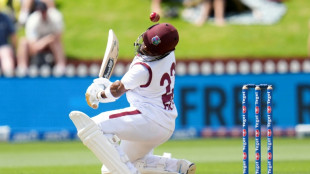
-
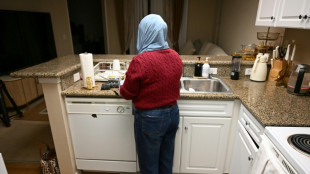 US Afghans in limbo after Washington soldier attack
US Afghans in limbo after Washington soldier attack
-
England lose Duckett in chase of record 435 to keep Ashes alive
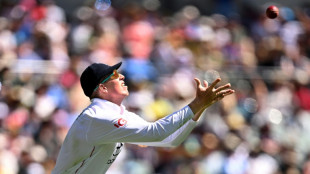
-
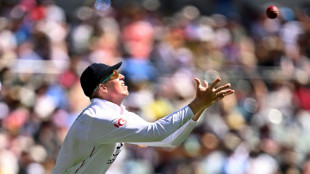 Australia all out for 349, set England 435 to win 3rd Ashes Test
Australia all out for 349, set England 435 to win 3rd Ashes Test
-
US strikes over 70 IS targets in Syria after attack on troops

-
 Australian lifeguards fall silent for Bondi Beach victims
Australian lifeguards fall silent for Bondi Beach victims
-
Trump's name added to Kennedy Center facade, a day after change

-
 West Indies 206-2, trail by 369, after Duffy's double strike
West Indies 206-2, trail by 369, after Duffy's double strike
-
US strikes Islamic State group in Syria after deadly attack on troops

-
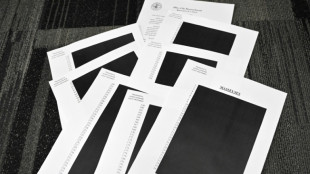 Epstein files opened: famous faces, many blacked-out pages
Epstein files opened: famous faces, many blacked-out pages
-
Ravens face 'special' Patriots clash as playoffs come into focus

-
 Newly released Epstein files: what we know
Newly released Epstein files: what we know
-
Musk wins US court appeal of $56 bn Tesla pay package

-
 US judge voids murder conviction in Jam Master Jay killing
US judge voids murder conviction in Jam Master Jay killing
-
Trump doesn't rule out war with Venezuela

-
 Haller, Aouar out of AFCON, Zambia coach drama
Haller, Aouar out of AFCON, Zambia coach drama
-
Nasdaq rallies again while yen falls despite BOJ rate hike

-
 Bologna win shoot-out with Inter to reach Italian Super Cup final
Bologna win shoot-out with Inter to reach Italian Super Cup final
-
Brandt and Beier send Dortmund second in Bundesliga

-
 Trump administration begins release of Epstein files
Trump administration begins release of Epstein files
-
UN Security Council votes to extend DR Congo mission by one year

-
 Family of Angels pitcher, club settle case over 2019 death
Family of Angels pitcher, club settle case over 2019 death
-
US university killer's mystery motive sought after suicide
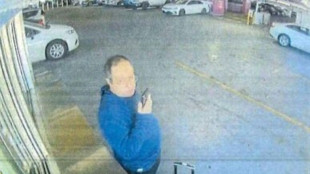
-
 Rubio says won't force deal on Ukraine as Europeans join Miami talks
Rubio says won't force deal on Ukraine as Europeans join Miami talks
-
Burkinabe teen behind viral French 'coup' video has no regrets

-
 Brazil court rejects new Bolsonaro appeal against coup conviction
Brazil court rejects new Bolsonaro appeal against coup conviction
-
Three-time Grand Slam winner Wawrinka to retire in 2026

-
 Man Utd can fight for Premier League title in next few years: Amorim
Man Utd can fight for Premier League title in next few years: Amorim
-
Pandya blitz powers India to T20 series win over South Africa

-
 Misinformation complicated Brown University shooting probe: police
Misinformation complicated Brown University shooting probe: police
-
IMF approves $206 mn aid to Sri Lanka after Cyclone Ditwah

-
 Stocks advance as markets cheer weak inflation
Stocks advance as markets cheer weak inflation
-
Emery says rising expectations driving red-hot Villa

-
 Three killed in Taipei metro attacks, suspect dead
Three killed in Taipei metro attacks, suspect dead
-
Seven Colombian soldiers killed in guerrilla attack: army

-
 Amorim takes aim at Man Utd youth stars over 'entitlement'
Amorim takes aim at Man Utd youth stars over 'entitlement'
-
Mercosur meets in Brazil, EU eyes January 12 trade deal

-
 US Fed official says no urgency to cut rates, flags distorted data
US Fed official says no urgency to cut rates, flags distorted data
-
Rome to charge visitors for access to Trevi Fountain

-
 Spurs 'not a quick fix' for under-fire Frank
Spurs 'not a quick fix' for under-fire Frank
-
Poland president accuses Ukraine of not appreciating war support

-
 Stocks advance with focus on central banks, tech
Stocks advance with focus on central banks, tech
-
Amorim unfazed by 'Free Mainoo' T-shirt ahead of Villa clash

-
 PSG penalty hero Safonov ended Intercontinental win with broken hand
PSG penalty hero Safonov ended Intercontinental win with broken hand
-
French court rejects Shein suspension


Bolivian toymaker restores limbs, dignity with 3D-printing
As a kid growing up in poverty in rural Bolivia, Roly Mamani built his own toys. Now a 34-year-old engineer, he 3D prints limbs for Indigenous compatriots scarred by life-changing accidents.
Mamani funds the endeavor with the money he makes from selling robotic toys he makes -- his other passion, which, after building his first remote-controlled toy car as a child, he never abandoned.
Surrounded by prostheses, plants and 3D-printed dinosaurs in his study, Mamani pores over an arm he is devising for a boy who lost his due to an electric surge.
It is his purpose, the engineer told AFP, "to improve people's quality of life."
The son of small-scale farmers, Mamani grew up in Achocalla, a community nestled between two lagoons some 15 kilometers (10 miles) north of the capital La Paz, verdant with pasture, vegetables and tubers.
With no money for toys, he started building his own play cars from plastic and cardboard at a young age, upgrading in primary school to a motorized version.
Before entering public university, Mamani worked for two years at an automobile workshop where he was exposed to "the first real machines I ever saw."
Ten years ago, he opened his own workshop in Achocalla to build robotic toys and educational aids.
"You could say I have all the toys I want now," he said.
Then everything changed when he heard about a rural man without hands and thought to himself: "I can make them for him."
In 2018, the toymaker of Achocalla set out to find life-improving solutions for other disfigured Bolivians with his 3D printers.
"Science is like a superpower. Robotics is a trend, but if it does not address important things, it doesn't mean anything," he mused.
- More than 400 made -
Against the background noise of printers at work, Mamani told AFP he can create six units a month.
Since 2018, "we have made more than 400 prostheses," he said.
Half were delivered free of charge or at the cost of production, funded by his robotics sales.
On average, a 3D-printed prosthesis in Bolivia costs about $1,500, more than five times the minimum salary.
A functional prosthesis -- the type that allows certain movements -- can cost as much as $30,000.
Yet the public health system does not cover prosthetics, in a country where some 36,100 people have physical and mobility problems, according to the state-aligned National Committee of People with Disabilities.
Mamani himself chooses the recipients of his donations from the countless requests he receives, including from abroad.
"The people in the most need are those who work precarious jobs without safety, which is why they have these accidents in which they lose a limb," he said.
- 'A blessing' -
One of their beneficiaries is 59-year-old Pablo Matha, who lost his vision and right hand seven years ago in a mining accident involving dynamite.
After that, "I went out every day to ask for some coins (on the street.) That's where my friend Roly and his brother found me," Matha told AFP.
Mamani's brother Juan Carlos is a physiotherapist, who helps with the patients' physical rehabilitation.
Matha said the prosthesis helped him regain his self-respect. He now plays the guitar to earn a living.
He said he used to "feel people looking at me and laughing. But now that I have the prosthesis... sometimes I feel that I am like any ordinary person."
Marco Antonio Nina, 26, was another recipient. As a teenager, working on a masonry project, an electric shock severed his left arm and stunted the right one.
"I like to sing, but without the prosthesis it hurt to hold the microphone... Now with this, it's a blessing," he said.
Mamani wants to use the recognition he has won for his work -- he has been awarded a US robotics scholarship -- to set up a rehabilitation center.
"I want to generate my own technology, I have to improve," he said.
P.M.Smith--AMWN


